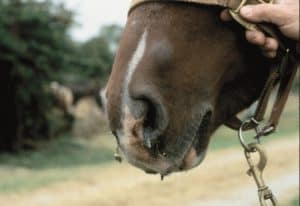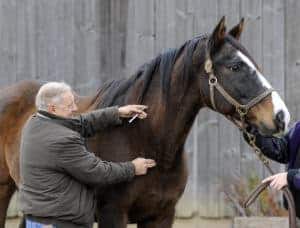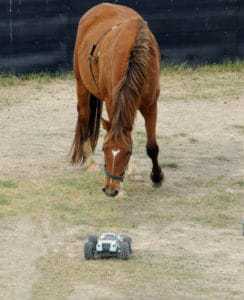
Researcher: Work Objectively to Understand Equine Behavior
By working objectively, equitation scientists could enter a new dimension of understanding equine behavior.


By working objectively, equitation scientists could enter a new dimension of understanding equine behavior.

“The road ahead is all about what science can do for the horse,” one international rider says.

Paying attention to certain, sometimes minute, details can help horses enjoy longer athletic careers.

The rule states that any horse with “fresh blood” on its body will be definitively eliminated.

A cut-out patterned English appeared to have multiple benefits when compared to not using a pad.

Several countries could be affected by the equine influenza virus transmitted during October horse sales.

A World Horse Welfare representative spoke on the topic at the 2012 FEI General Assembly, held Thursday.

One researcher relayed that study findings indicate horses might have more trust in familiar rider.

The FEI’s new project will include endorsing an official biosecurity guide and promoting horse passports.

An electrically powered hybrid cart prevents equine fatigue and makes pulling heavy loads safer for horses.

One welfare group uses learning theory techniques to keep feral or neglected horses and their handlers safe.

Paying attention to horses’ psychological factors is key to ensuring success in work and mental well-being.

Research on escape and avoidance can help trainers improve techniques to benefit horse welfare.

“Learning theory” research could help keep vets safer when working with difficult equine patients.
Totilas is being treated unethically and in violation of German animal welfare laws, one lawyer says.

During round pen training researchers got similar results from an inanimate object as from a human.
Stay on top of the most recent Horse Health news with